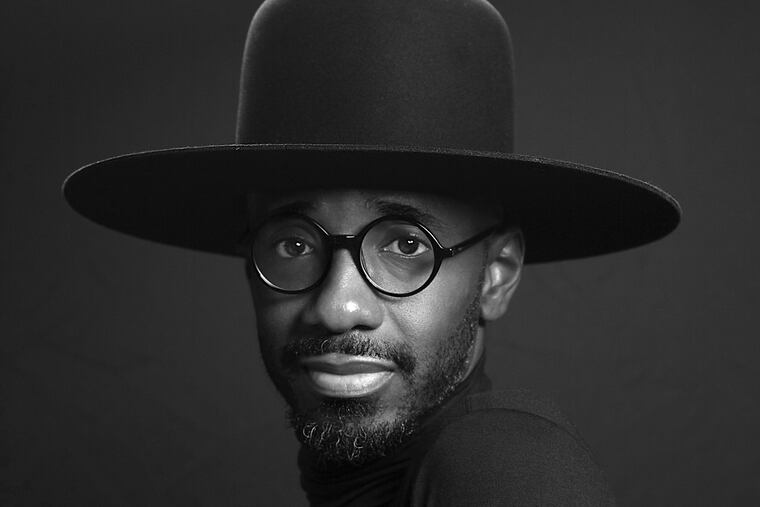Reject DaBaby’s bigotry on HIV and celebrate authentic work from Southwest Philly’s Donja R. Love | Opinion
It is important to uplift people who live with HIV and have been on the front lines of making our stories visible — especially in the aftermath of DaBaby’s stigmatizing and homophobic remarks.

There aren’t many Black, queer, and openly HIV-positive Southwest Philadelphians who are writers or playwrights, so when I heard about Donja R. Love and his work, I became a fan almost immediately. It is important to uplift and center people who live with HIV and have been on the front lines of making our stories visible — especially in the aftermath of DaBaby’s stigmatizing and homophobic remarks about HIV/AIDS and oral sex at the Rolling Loud festival on July 25. His telling audience members that “didn’t show up with HIV/AIDS, or any of them deadly sexually transmitted diseases that’ll make you die in two to three weeks, put your cell phone light in the air” represented another public figure trying their best to shame us into the shadows. That makes it all the more important to celebrate artists who bring their lived experience of marginalization into their work.
Love tested positive for HIV in December of 2008 while living in North Philadelphia. A numbness took over his body as he walked through the test waiting area with a smile, determined not to alert the people of this new and heavy reality. But walking outside, Love remembers, “It was a lifetime movie, chyle, it started pouring down raining.” Walking home with water washing over him, the truth of being newly diagnosed set in.
» READ MORE: Playwright Donja R. Love wins Philadelphia Theatre Company’s Terrence McNally Award
Love’s work has been informed by this experience. His 2019 play one in two is about friends who go together to get tested for HIV. The play is named after the Centers for Disease Control and Prevention’s 2016 projection that one in two Black men who have sex with men will test positive for HIV in their lifetimes, giving the work a contemporary realness. In the play Sugar In Our Wounds, viewers encounter enslaved Black men who love each other in the South during the Civil War, a story hardly ever dramatized. That production connects queer Black people today to the lives of ancestors whose intimacies were not necessarily named, challenging linear temporality and showing audiences a textured past that rejected a gender and sexuality binary.
As a Black queer person who lives with HIV, I find sanctuary and cultural memory in the beautiful ways Love tells stories. But mainstream critics sometimes miss the value of these perspectives. Love told me he felt theater critics failed to appreciate both the rarity of Sugar In Our Wounds as a cultural production and the specificity of lived experience one must have to fully understand it. Speaking of the “violence” of a New York Times review of Sugar, which criticizes the play as unrealistic for having family members support their queer relatives, Love says the critic couldn’t “even fathom a world where Black people, Black elders held space for their queer children, to affirm their queer children.”
» READ MORE: After 40 years, AIDS still devastates communities of color | Opinion
Rhone Fraser, a cultural critic who holds a doctorate in African American history from Temple University, told me that “the same way we study August Wilson, the same we study Shakespeare, we need to study the works of Donja R. Love because they are relevant to a new generation.”
Love also sees himself as a culture worker and community builder, creating a playwriting fellowship for people living with HIV. The 10-week Write It Out! fellowship and workshop started in 2019 and “provides an affirming space for people living with HIV (PLWHIV) to create their narratives in a theatrical framing artistically,” as its website describes. This year the application process is open until Sunday, and Write It Out! has also expanded to include the WIO! Prize — $5,000 funded by Billy Porter and an opportunity to develop a new work with a professional dramaturg, who will receive a GLAAD stipend.
In a world that criminalizes HIV-positive people with laws seeking to control and punish our intimacy, and that tells us we aren’t valuable, artists like Donja R. Love light a candle so we can see ourselves reflected in our fullness, with humanity and transparency. I continue to believe that affirmation is one of the most effective public health tools we have, while the hateful rhetoric of DaBaby and others only serves to dim our lights.
Abdul-Aliy Muhammad is an organizer and writer born and raised in West Philadelphia. @MxAbdulAliy